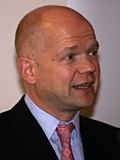6 May 1999 | |||||||||||||||||||||||||||||||||||||||||||||
All 36 metropolitan boroughs, 35 out of 46 unitary authorities, 237 out of 238 English districts, all 32 Scottish council areas and all 22 Welsh principal areas | |||||||||||||||||||||||||||||||||||||||||||||
|---|---|---|---|---|---|---|---|---|---|---|---|---|---|---|---|---|---|---|---|---|---|---|---|---|---|---|---|---|---|---|---|---|---|---|---|---|---|---|---|---|---|---|---|---|---|
| |||||||||||||||||||||||||||||||||||||||||||||
 Colours denote the winning party, as shown in the main table of results. | |||||||||||||||||||||||||||||||||||||||||||||
The 1999 United Kingdom local elections were held on Thursday 6 May 1999. [1] [2] All Scottish and Welsh unitary authorities had all their seats elected. In England a third of the seats on each of the metropolitan boroughs were elected along with elections in many of the unitary authorities and district councils. There were no local elections in Northern Ireland.
Contents
- Results
- England
- Metropolitan boroughs
- Unitary authorities
- District councils
- Scotland
- Wales
- References
The elections saw Labour, now in their second year of government, suffer a setback as the opposition Conservatives gained ground. The councils up for election had last been contested in 1995, which saw Labour achieve record gains and the Conservatives lose over 2,000 seats.


